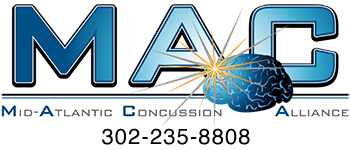Unlike a broken arm or sprained ankle, concussions are invisible. These mild forms of brain injuries can be very problematic yet unfortunately don’t show up on CT or other traditional scans. And the subsequent consequences, both physical and mental, can vary greatly depending on what part of the brain was injured and the severity of the injury. Symptoms can show up weeks or even months later. And sometimes some not-so-obvious signs of a concussion or more severe brain injuries may not show up for days, weeks, or even months.
Some symptoms can include:
- Persistent headaches, often cervicogenic (occurring as a result of injury to the muscles and soft tissue in neck and back of head)
- Short-term memory loss
- Difficulty concentrating
- Sensitivity to light or noise
- Nausea or vomiting
- Sadness or anxiety
- Fatigue
- Insomnia
Balance
Some statistics show that between 30 and 65% of people with traumatic brain injuries experience lack of balance, even while sitting, which is a real problem that’s especially dangerous in older individuals. While animals like beavers, squirrels and kangaroos can use their tails like an extra limb to help them balance, we humans aren’t so lucky! Arm usage (assuming there is no arm damage) may not be enough to counteract issues with balance.
Individuals with balance issues may experience lightheadedness, nausea and vertigo (feeling like your surroundings are moving). To assist patients with balance issues, we often suggest vestibular rehabilitation. Fall-proofing the home may be needed, like removing throw rugs. Ensuring good lighting throughout the home is another way of helping avoid additional injury. Medication may be prescribed.
Assessing the Situation
At MAC Alliance we evaluate concussions using highly advanced, FDA-approved tools like ImPACT®, BrainScope® and RightEye®. Whatever your injury or symptoms, we’ll provide the appropriate treatment to manage your symptoms and help speed up your recovery.








